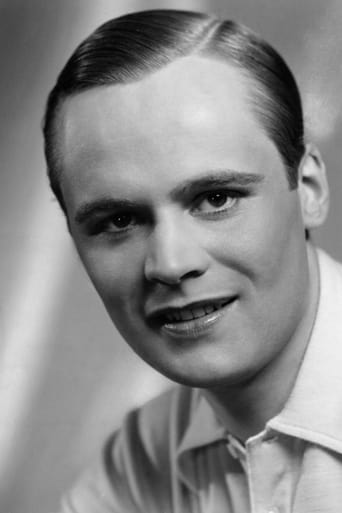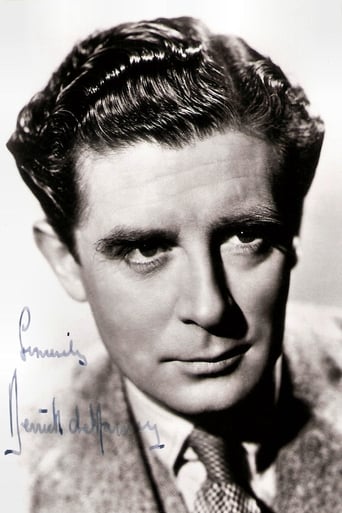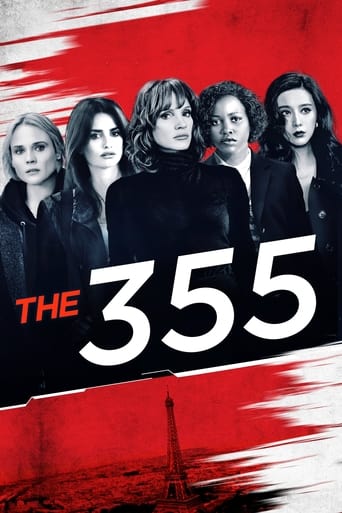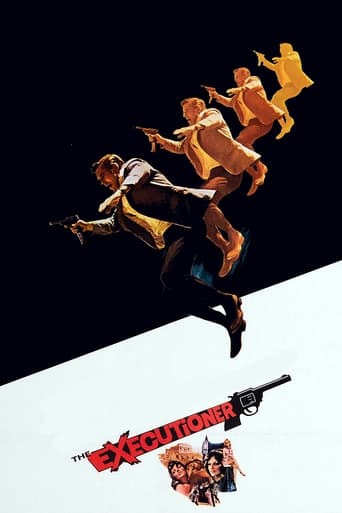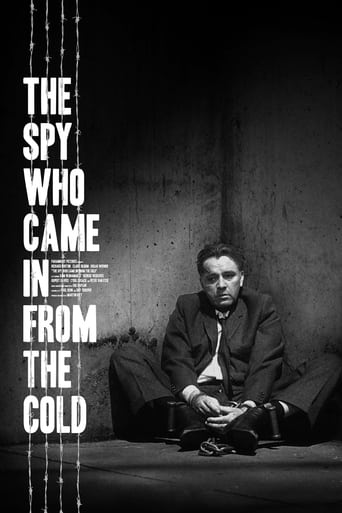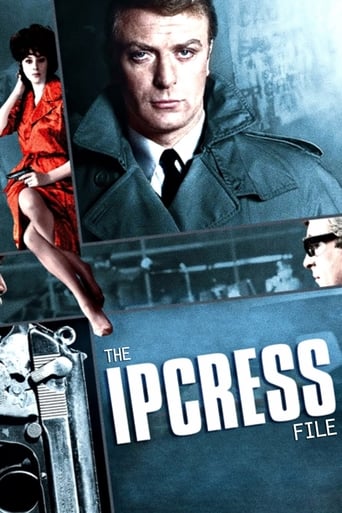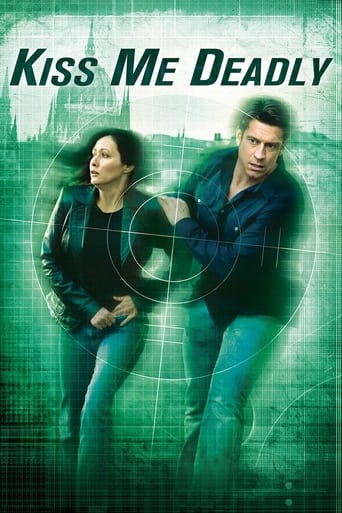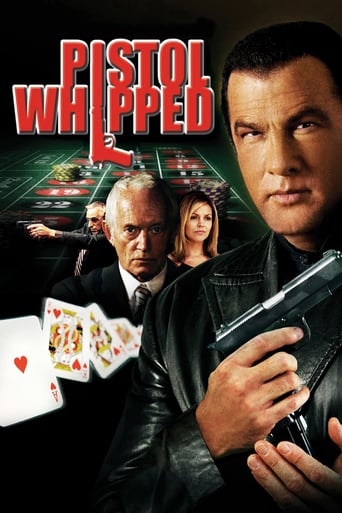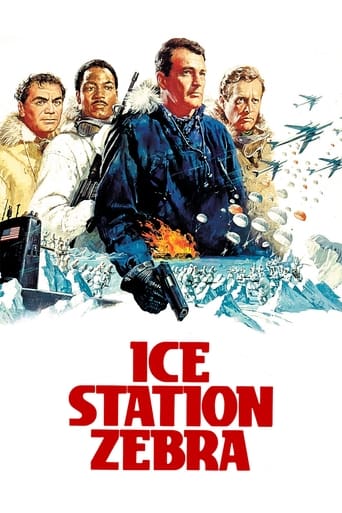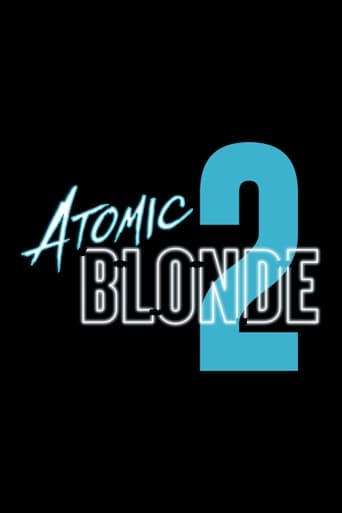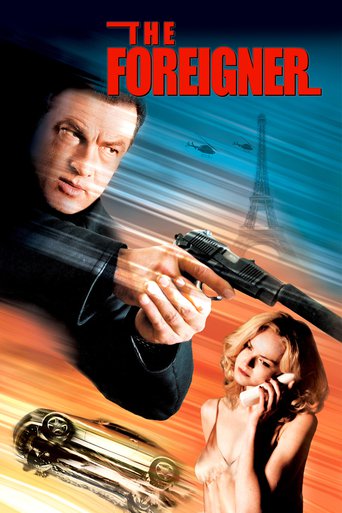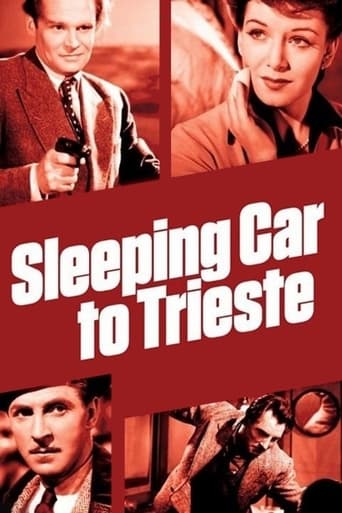
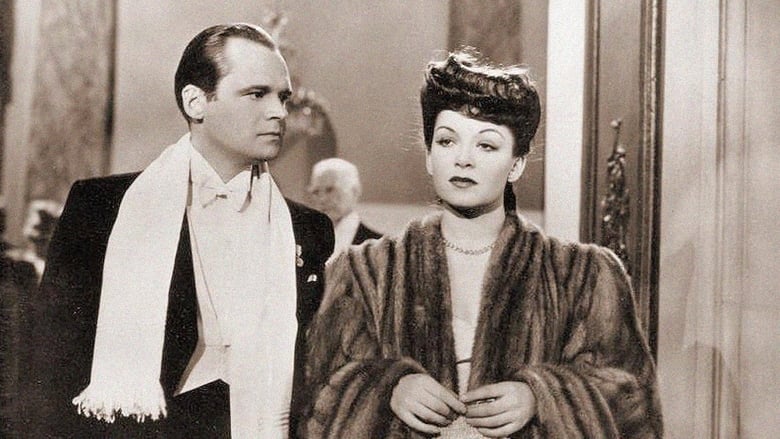
Sleeping Car to Trieste (1948)
Spies pursue a stolen diary aboard the Orient Express.
Watch Trailer
Cast


Similar titles
Reviews
Strong and Moving!
Sadly Over-hyped
The film never slows down or bores, plunging from one harrowing sequence to the next.
This is one of the best movies I’ve seen in a very long time. You have to go and see this on the big screen.
SLEEPING CAR TO TRIESTE is a post-war thriller set on board a train in which various spies and interested political parties attempt to get their hands on a precious stolen diary. After a slow first hour which is all set-up, the story gets quite interesting and throws some thrillery-type thrills into the mix. The cast isn't bad, including the familiar likes of Hugh Burden, David Tomlinson, and Finlay Currie in the mix, and things build to an effective 'who's the bad guy?' twist climax. It's not one of the most exciting films ever made, but it does the job well enough.
As an American, I am always interested to see how Americans are portrayed in European films, particularly films made prior to WWII and in the years immediately following it.The American in this film is portrayed as a vulgar contrast to the more sophisticated Europeans on board the train. He is a boozing, whistling, skirt-chasing Italian-American GI with a New York accent. (Why are they always from New York?) He is contrasted with the British passengers in two notable ways: First, his passion for the fairer sex is more overt and he comes across as wolfish in his pursuit of the young women in the film. This is contrasted with the discrete way in which the adulterous British couple on board the train are conducting their affair. When the two young French woman spurn his attempts to have a drinking party with them in their sleeping compartment, one says to him "We no longer wish to be liberated!" or words to that effect. This is a revealing statement about how the American military presence in postwar Europe was wearing thin the patience of Europeans.Second, the magazines this American GI reads are prominently displayed so as to ensure that the audience can see them. They are the standard popular American mediocrities of the day: Saturday Evening Post, Life Magazine, etc. This is contrasted with the more scholarly (albeit boring) readings of bird-watching Britisher sharing his compartment.Overall, the American in this film is the stereotypical boorish American so common in European films of this era. His portrayal, however, is not worse than Hollywood's stereotypes of Europeans.Please note that this is not a criticism, but rather an observation. Americans are not singled out for criticism; the film traffics in several stereotypes (the cheapness of Scotchmen, for example) and does so mainly in a vein of comedic irony. Even the British get their own send-ups in this film.
There is something about trains as a setting for crime, espionage, and mystery. Agatha Christie used it in several of her stories, the most notable being turned into the film "Murder On The Orient Express". Other choice examples include Hitchcock's "The Lady Vanishes", Carol Reed's "Night Train To Munich", "The Great Train Robbery" (with Sean Connery), and "Break Heart Pass". The historical settings of some of these stories dim any possible contemporary relevance from when they were made, but some of them remind us of the latter. Hitchcock and Reed's films were definitely aimed at the threat of Nazi Germany. And this film, "Sleeping Car to Trieste" was definitely set in post - 1945 Europe, and hinted (somewhat broadly) at what was the country that the train's hidden cargo was aimed at.Albert Lieven and Jean Kent are foreign agents who steal a valuable diary from an embassy in Paris. Allan Wheatley is an accomplice, to whom the diary is passed by Lieven. But two unexpected problems arise. First, Lieven had to kill a servant in the embassy to complete the theft of the diary and get away. Secondly Wheatley has doubled crossed his partners, and is fleeing (via the Orient Express) to sell the diary for a large sum of money. Lieven and Kent soon have found out where to find Wheatley, and pursue him. However, they are soon involved with not only tracking down Wheatley (who is hiding out in a train compartment) but with an adulterous couple, an idiot friend (David Tomlinson) of the man in the adulterous couple relationship, a wealthy, autocratic writer (Finley Currie) and his beaten down secretary, a bird watcher, a French police inspector, and the train's cook (Gregoire Aslan) who is going through a purgatory listening to a cooking "efficiency" expert from England who knows nothing about making edible food. The film follows the twists and turns until the showdown moment when Lieven and Kent may get the stolen diary back or not.I'm not a spoiler so I won't ruin the conclusion for viewers (who won't be disappointed). My concern here is what is the historical edge to when the film was made (1948). Lieven and Kent are from an Eastern European country, and Lieven cannot get into the country for some political reason (which Wheatley is counting on). But the diary would (if published) hurt the current regime (although it might cause another European War). What is this country, and why does it seem in the interest of the west (represented by the French inspector) for them to retrieve the stolen diary? Obviously the answer is the setting in the title: "Sleeping Car to Trieste". "Trieste", the last "western" European city/stop on the Orient Express, is on the border of Italy and Yugoslavia. In 1948 Yugoslavia was one of the Communist states set up by Russia following the end of World War II. But that year, it was becoming apparent to England and France (and the U.S.) that Yugoslavia was not going to be a robot creation of the U.S.S.R. Under Tito that country was struggling to practice socialist doctrine but not to automatically jump to Russian demands. As Yugoslavia is mountainous, and far from Russia, it could get away with this. But Yugoslavia was made up of six or seven nations, and if they were set at each other's throats the system would collapse. It was to the interest of the west to help (quietly) prop up Tito.It fits into the plot on several levels. Lieven held military rank in the country prior to 1945. He must have been an officer in the Chetnik forces that Tito and his partisans defeated and decimated. He has no love for that regime, and if the published diary destroys it all to the good (and who cares about the European consequences - Yugoslavia, the creation of the Serbs after World War I, was built from the ruins of 1914 Europe due to the Serbian assassination of Franz Ferdinand). The country that resulted, though, was really a difficult balancing act (note how quickly it has collapsed in the years since Tito died in the 1980s). As Finley Currie comments in the film it is a crack-pot country, as opposed to say France, Spain, England, or Holland. This is actually wrong. Conflicting nationalist movements bother France, Spain, and England to this day - it's just that the people seem more homogeneous on the surface. But Currie, supposedly a world peace advocate but actually a blow-hard, has been insulted by being denied entrance to Yugoslavia by the government. He is venting his frustration with his comment. The movie flows very quickly, and is a solid entertainment. As such I recommend seeing it to anyone who wants to see a good film of intrigue.
Sleeping Car to Trieste is pretty much a standard post-war British spy thriller set on The Orient Express with all the usual sets and train mock-ups. Nothing too cerebral but light entertainment when you have nothing better to do.



